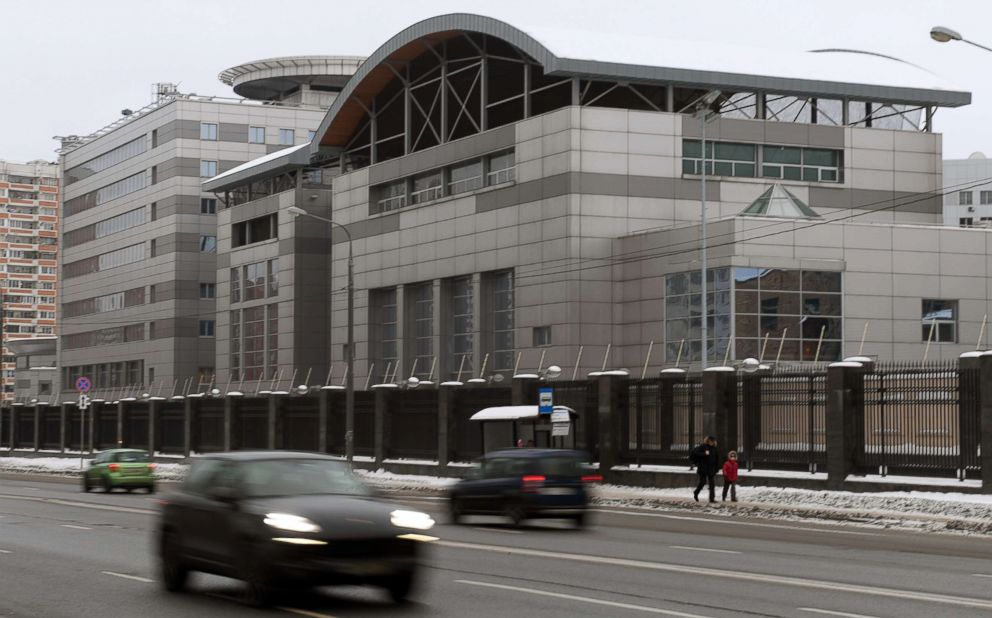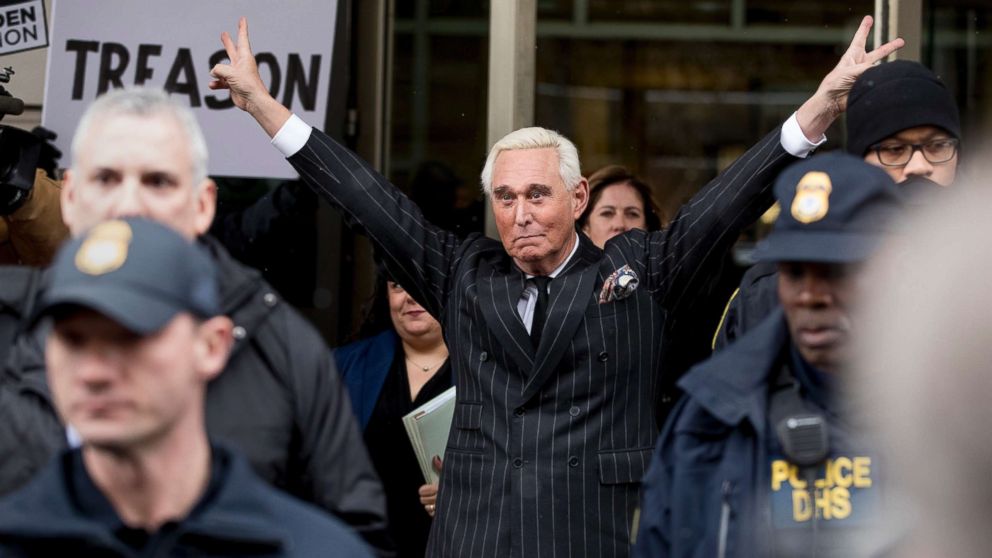Does inconspicuous clerk’s marking on Roger Stone indictment hold deeper clues to Mueller case?
Special counsel Robert Mueller’s recent indictment against President Donald Trump’s longtime friend and veteran political operative Roger Stone laid out a series of assertions against him but never alleged contact with Russians -- the heart of the Mueller probe.
But hints of those ties may have been hidden in plain sight – in the form of a little-noticed marking on the indictment itself that legal experts believe may suggest more about Stone’s role in the probe than the actual charges against him.
On the copy of Stone’s indictment filed to the official docket for his case, a marking from the U.S. district court clerk’s office reveals it has a “related case” -- the July 13 indictment against a dozen Russian intelligence officers accused of hacking the Democratic National Committee and Hillary Clinton campaign chairman John Podesta.

The seven charges against Stone are for allegedly lying to lawmakers and attempting to intimidate a witness. Legal experts said the assertion that the hacking case is “related” means the prosecutors consider both cases to be part of a larger story.
The marking indicates prosecutors see a “common nucleus of facts” in the cases, former federal prosecutor Ken White told ABC News.
Randall Eliason, a former federal prosecutor and lecturer at George Washington University, said prosecutors will link cases if they cover similar ground – whether it’s facts, issues, parties or evidence -- in part so the cases appear before the same judge “as a matter of efficiency,” since the judge would presumably already be familiar with the basic facts.
Eliason said it’s not surprising that Stone’s case could be related to the Russians’ since Stone himself is referenced, though never by name, in the Russian case. Then there’s the prominent role Wikileaks played in both purported narratives, exemplified by the hack appearing in the first line item in the introduction of Stone's indictment.
An attorney for Stone declined to comment on the “related” classification, which was previously reported by Rolling Stone. A spokesperson for the special counsel’s office declined to comment.
The related case filed in July laid out charges against 12 Russians whom prosecutors alleged were members of a military intelligence unit known as GRU. The case alleges the GRU officers hacked troves of documents and emails belonging to the Democratic National Committee and then-Hillary Clinton campaign chairman John Podesta. The Russians allegedly leaked the emails through the anti-secrecy website Wikileaks, which published them online in 2016. Wikileaks has denied that Russia was the source of the hacked documents.
The GRU defendants, all believed to be in Russia, have never answered the charges against them in court and remain beyond the reach of U.S. law enforcement.
Stone has acknowledged to ABC News that he is the unnamed “person in regular contact with senior members of the presidential campaign of Donald J. Trump,” who is described in the related indictment as having been in touch with Guccifer 2.0 -- a fake persona prosecutors say the Russian hackers used. Stone has downplayed the contacts with Guccifer as innocuous and denied he was aware Guccifer was a front for any Russians.

The charging documents against Stone allege he lied to Congress about communications with Wikileaks and with the Trump campaign, among other alleged crimes, but the 23-page filling only makes glancing references to the purported Russian hackers, and contains no specific reference to Guccifer 2.0.
Stone pleaded not guilty to the charges against him.
Because members of the Mueller team have remained silent about their thinking, it is impossible to know for sure why they linked the two cases in their court filings. But experts tell ABC News the decision does offer some clues as to a broader Mueller strategy.
John Cohen, a former Department of Homeland Security official and now an ABC News consultant, said the “related” designation could be significant because it may underline Mueller’s continuing interest in teasing out any purported links between Stone and the Russians.
“During these types of investigations, it’s not uncommon to indict a person on charges you have enough evidence to prosecute for and once you amass enough evidence, add those new charges in a superseding indictment,” he said.
Shan Wu, another former federal prosecutor who now focuses on white-collar defense, said the designation “ups the importance of the voluminous evidence seized” by investigators upon Stone’s arrest. Wu said he too would not be surprised if it signaled more charges against Stone more directly related to his communications with the Russians.
Eliason, however, said it could be a mistake to read too deeply into the marking’s significance beyond the formal linking of the two cases.
“It doesn’t mean there isn’t something more coming, but I wouldn’t infer that,” he said. “It could be a pretty simple explanation that they [the two cases] share common facts.”




